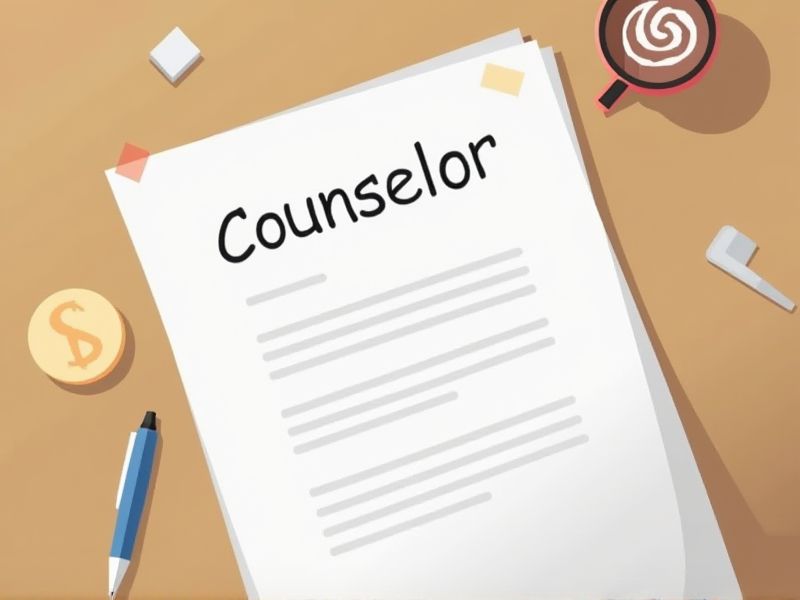
Family counselors often deal with complex family dynamics and sensitive issues requiring advanced understanding and skills. Acquiring certain certifications ensures they are equipped with the latest methodologies and ethical standards, enhancing their effectiveness. Certifications also build trust and credibility with clients and employers, indicating a therapist's dedication to professional growth. Key certifications essential for family counselors include those that focus on systemic therapy and legal and ethical considerations in therapy.
Licensed Marriage and Family Therapist (LMFT)
An LMFT is essential as they possess specialized training in understanding the dynamics of both individual and family systems, which aids in effectively diagnosing and treating relational conflicts. Their licensure ensures they have met rigorous educational and experiential standards, providing clients with credible therapeutic guidance. The therapist's expertise in communication patterns and emotional processes enables families to develop healthier interactions. Additionally, LMFTs are trained to address a variety of complex issues, from marital discord to child behavioral problems, offering a comprehensive approach to family wellness.
Licensed Professional Counselor (LPC)
Licensing ensures that a counselor has met rigorous educational and ethical standards, providing assurance to families seeking guidance. It mandates a certain level of training, including both academic coursework and supervised practice, which equips counselors to handle complex family dynamics effectively. Licensure requires continuing education, driving professionals to stay current with the latest therapeutic techniques and research. It offers legal accountability, helping protect clients from malpractice and ensuring a high standard of care.
National Certified Counselor (NCC)
The National Certified Counselor (NCC) credential provides family counselors with a standardized level of competence, ensuring they have met national professional practice standards. This certification enhances credibility and trust with clients, assuring them of the counselor's commitment to ethical practices and ongoing education. NCC certification opens access to a broader range of professional networks and resources that can significantly benefit family counselors in addressing diverse client needs. Having this credential often increases job opportunities and career advancement potential within the counseling field, benefiting both the counselor and their clientele.
Certified Clinical Mental Health Counselor (CCMHC)
Certified Clinical Mental Health Counselors offer specialized expertise in diagnosing and treating mental health disorders, essential for addressing complex family dynamics. Their training provides them with advanced skills in therapeutic techniques, enabling effective interventions in family conflicts. This certification ensures counselors stay updated with current best practices, enhancing their ability to support diverse family structures. Families face evolving challenges that require seasoned professionals capable of navigating sensitive issues with informed approaches.
Certified Family Counselor (CFC)
Certified Family Counselors (CFCs) prove their expertise in managing complex family dynamics, offering evidence-based strategies that improve relational health. Certification ensures the counselor meets industry standards, enhancing trust among clients seeking guidance for sensitive issues. The CFC credential encourages continuous education, keeping counselors updated on the latest therapeutic methods. Access to a certified professional can reduce family stress, promoting overall well-being through effective conflict resolution.
Certified Trauma Professional (CTP)
Family counselors dealing with trauma require specialized training to effectively address complex emotional and psychological states that clients might experience. Holding a Certified Trauma Professional (CTP) designation ensures a counselor has extensive knowledge of trauma's impact on family dynamics, improving treatment outcomes. Trauma-informed care provided by a CTP can prevent retraumatization, fostering a safer therapeutic environment for families. As families face multifaceted trauma symptoms, a counselor with CTP credentials is better equipped to develop comprehensive and tailored intervention strategies.
Certified Grief Counselor (CGC)
Grief often complicates family dynamics, and a Certified Grief Counselor is equipped to address these complex emotional layers. The presence of unresolved grief in family counseling can hinder effective communication, and a CGC can provide targeted strategies to navigate this. Families experiencing loss may struggle with collective healing, and a CGC helps guide them through this process. Incorporating grief counseling into family therapy ensures a comprehensive approach to emotional well-being, fostering resilience and unity.
Certified Substance Abuse Counselor (CSAC)
Family counselors often encounter cases where substance abuse is a significant factor. Having a Certified Substance Abuse Counselor on board enables them to address these complex situations more effectively. CSACs bring specialized knowledge that aids in assessing addiction issues and creating appropriate treatment plans. Their expertise enhances the overall success rate of family counseling by addressing underlying substance-related challenges directly.
Crisis Intervention Certification (CIC)
Crisis Intervention Certification provides family counselors with the skills to manage emergency situations effectively. Training equips them to handle high-stress scenarios that can arise unexpectedly in family dynamics. With CIC, counselors can offer evidence-based techniques to de-escalate conflicts. Certification ensures adherence to professional standards, enhancing the counselor's credibility and trust with clients.
Mental Health First Aid Certification (MHFA)
Family counselors often encounter clients facing mental health challenges. Having a Mental Health First Aid Certification equips them with essential skills to identify and respond to mental health crises effectively. This certification enables counselors to provide immediate support and guidance, preventing situations from escalating further. The added competence enhances their ability to facilitate healthier family dynamics and foster long-term well-being.
Summary
When you engage with a family counselor who has obtained certifications, you can anticipate a higher level of professionalism and expertise. Certifications validate the counselor's skills, likely leading to more effective communication strategies during sessions. This ensures that you potentially experience more meaningful resolution to familial conflicts. By choosing a certified counselor, your confidence in the therapeutic process might grow, enhancing overall satisfaction and outcomes.
